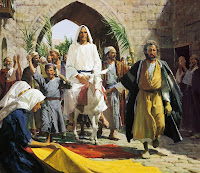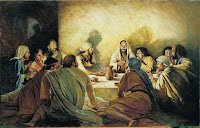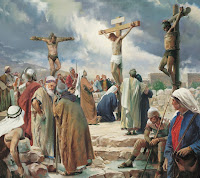Luke 16:1-12; 19-31; 17:11-19;
18:1-14 Parables and Accounts that Teach Eternal Truths
There are certain parables that I have studied in my life that really stand out to me. This week I had the privilege to study parables the that were less familiar to me. The principles didn't stand out to me right away so I needed to read the student manual, words of the prophets to gain greater insight and learn what the Lord wanted me to know.
This week the assignment was to study the
parables and accounts with the accompanying commentary from the institute
student manual and describe what we feel is the major principle the Lord wants
us to understand from each of the parables.
Luke 16: 1-12 The Parable of the Unjust Steward
 |
| Calgary Alberta Temple |
This parable discusses the importance of
preparing for our eternal future. We may put great effort towards the type of
life we live here in our mortal life, yet how much do we prepare for our life
afterward where we want to live with our Heavenly Father and our families
forever? This parable teaches the importance to prepare for eternal life. If we want eternal life, then we need to
prepare for eternal life while on earth. The New Testament teacher’s manual
states, “If we are wise, we will make
provision for our eternal future.”
“This parable does not
encourage us to be dishonest or to cheat others in any way; rather, it encourages us to prepare for our eternal future with the same energy and effort
as this steward prepared for his temporal future. If even an unscrupulous
steward will prepare for his future,
the Saints should be willing to prepare
for eternity.” New Testament Teacher Manual
Luke 16:19-31
The Parable of the Rich Man and Lazarus
What do we learn
about the Spirit World from this parable?
In the parable “Abraham’s bosom” refers
to paradise and “hell” is spirit prison. Before the death of Christ, there was
no way for spirits to move from “one place or condition to the other.” New
Testament manual
Because of the Atonement of Jesus Christ,
Jesus makes it possible for those in spirit prison to be taught the gospel of
Jesus Christ and repent. The Atonement bridges the gap between spirit prison
and paradise. Those who accept the gospel of Jesus Christ and repent may be
permitted into paradise. The Savior has atoned for all and removes those
trapped in spiritual darkness to receive the fullness of the gospel and live
with Him again. “Our circumstances in
the next life depend upon how we receive the Lord and His servants in this
life.” New Testament Manual
If we accept the gospel of Jesus Christ,
receive the Lord’s servants, keep God’s commandments and use the Atonement in
our life, then we will be able to live with God again.
President
Joseph F. Smith (1838–1918) clarified that before spirits can be
released from spirit prison, they must hear the gospel and accept it and the
saving ordinances must be performed for them: “In relation to the deliverance
of spirits from their prison house, of course, we believe that can only be done
after the gospel has been preached to them in the spirit, and they have
accepted the same, and the work necessary to their redemption by the living be
done for them” (Teachings of Presidents of the Church: Joseph F. Smith [1998],
413–14).
Luke 17:11-19,
Parable of the Ten Lepers
Why were the Ten
Lepers to show themselves to the Priests? And Were not Ten Cleansed?
The 10 lepers saw the Savior and asked
for mercy. Jesus told them to go show themselves to the priests. They did as
they were asked to do and were cleansed because of their obedience. However,
only one of the lepers that were cleansed returned to the Lord to give thanks and
because of the lepers faith and gratitude was made whole. Bishop Batemen comments on the
difference between the thankful leper and the unthankful lepers.
“Although
all ten lepers in this account were “cleansed,” only the Samaritan man who
returned was made “whole” (Luke 17:14, 19). Bishop
Merrill J. Bateman, while
serving as Presiding Bishop, taught: “In becoming a whole person, the grateful
leper was healed inside as well as on the outside. That day nine lepers were
healed skin deep, but only one had the faith to be made whole” (“The Power to Heal from Within,” Ensign, May 1995, 14).”
If we
are thankful in all things, then the Lord will bless us and we will become
whole.
Luke 18:1-8 The Parable of the Unjust Judge
Why did the Lord give the parable of the unjust
judge?
The Lord gives us the parable of the
unjust judge to teach us to never stop praying and to “pray and not to faint.”
“The
Greek word translated as “to faint” means to become discouraged or weary or to
tire of something. In the parable, praying without giving up is represented by
a widow who repeatedly appeals to a judge to remedy an injustice. There have been times when I feel tired and I
casually forget to say my prayers. The Lord teaches us in this parable to be
diligent in our prayers. If we are going through difficult times do not give up
praying. Show the Lord you can endure and pray through it.
I found Elder Holland’s quote below comforting:
Elder
Jeffrey R. Holland of the Quorum of the Twelve Apostles taught:
“When lonely, cold, hard times come, we have to endure, we have to continue, we
have to persist. That was the Savior’s message in the parable of the
importuning widow. … Keep knocking on that door. Keep pleading. In the
meantime, know that God hears your cries and knows your distress. He is your
Father, and you are His child” (“Lessons from Liberty Jail,” Ensign, Sept. 2009, 30). Perseverance is rooted in
the foundational gospel principles of faith and hope. Perseverance reflects our
faith that our actions will bring the Lord’s blessings into our lives.”
Luke 18:9-14 The Parable of the Pharisee and the
Publican
Why did the Lord give the parable of the Pharisee
and the publican?
The
Lord gives this parable to us to show the importance of living in humility. The
Pharisee trusted in himself and in his own feeling of himself. The publican
felt like a sinner. The Pharisee spoke of himself often. This parable show us
to rely upon the Lord and not our own abilities and attitudes. This parable is
a warning for us to humble ourselves and watch how we feel about others.
“The
Savior stated the moral of the parable in terms of pride and humility: “For
every one that exalteth himself shall be abased; and he that humbleth himself
shall be exalted” (Luke 18:14; see also D&C 52:15).” New Testament Student Manual
“Could there be greater contrast in the prayers of the two men?
The Pharisee stood apart because he believed he was better than other men, whom
he considered as common. The publican stood apart also, but it was because he
felt himself unworthy. The Pharisee thought of no one other than himself and
regarded everyone else a sinner, whereas the publican thought of everyone else
as righteous as compared with himself, a sinner. The Pharisee asked nothing of
God, but relied upon his own self-righteousness. The publican appealed to God
for mercy and forgiveness of his sins.
“Continuing the story, Jesus then said: ‘I tell you, this man,’
referring to the publican, the despised tax collector, ‘went down to his house
justified, rather than the other.’ (Luke 18:14.)
In other words, the Lord said he was absolved, forgiven, or vindicated. …
“Humility is an
attribute of godliness possessed by true Saints. It is easy to understand why a
proud man fails. He is content to rely upon himself only. … The proud man shuts
himself off from God, and when he does he no longer lives in the light. …
“… History
bears record that those who have exalted themselves have been abased, but the
humble have been exalted. On every busy street there are Pharisees and
publicans. It may be that one of them bears our name” (“The
Pharisee and the Publican,” Ensign, May 1984, 65–66).
.jpg)









